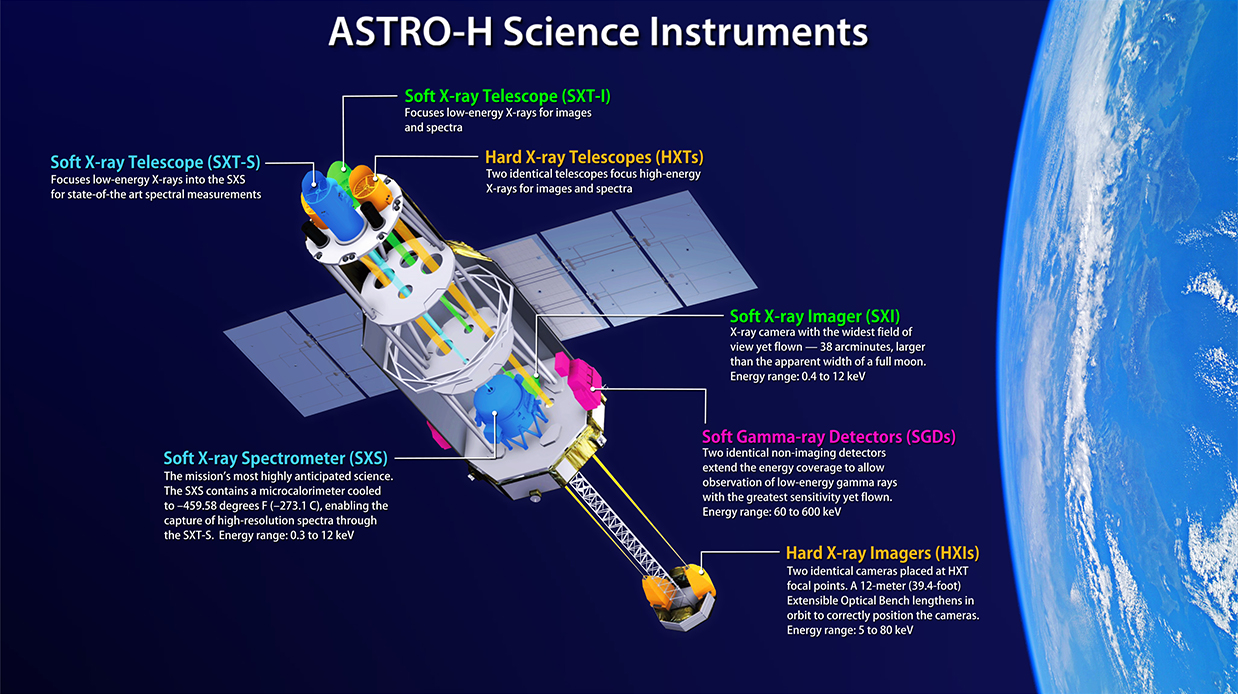On February 17th, JAXA launched ASTRO-H, a satellite telescope with the ability to observe and read X-rays from deep in outer space. The satellite was especially important for scientists studying black holes, stars, supernovas, and much more (X-rays are generated by very hot sources of energy in space). Now, sadly, JAXA have confirmed that the satellite had a major accident and may be lost for good.
Back on Saturday, March 26th, scientists saw that they weren't getting usual communication from Hitomi (which means "eye" or "pupil" in Japanese — it's a telescope, get it?). Later that evening, they confirmed that there was a "breakup" of the satellite.
Breaking up isn't much fun
For scientists, a breakup can mean a few things. For example, a satellite can collide with a micrometeorite that damages it. In these cases, the satellite can still be saved and eventually become useful again (JAXA has done this in the past).
In Hitomi's case, though, they believe that a tank on the satellite burst, causing the satellite to break into several pieces and go spinning out of control. After a week of investigations, they now believe that Hitomi is lost and cannot be recovered.
A big loss
Hitomi was a Japanese satellite, but it contained technology from other countries (including Canada) and was important to experts around the globe. You see, deep space (think of it as outer, outer, outer space) is mind-bogglingly huge. And since most X-rays are absorbed by Earth's atmosphere, space is the only place to put an X-ray telescope. There are only about 6 or 7 X-ray telescopes orbiting our planet, and some of them (like NASA's Chandra X-ray observatory) are over 15 years old. Just like its Japanese name, Hitomi would've been a valuable extra eye on the mighty mysteries of the massive universe.
But one thing is for sure, scientists won't let a setback like this stop them. Space is very challenging place, but it's a challenge scientists around the world are up for!











this is crazy
Oh noooooo ❗ ❗ ❗ ❗